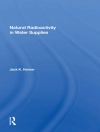This book examines how social media have transformed politics in established democracies. Specifically, the authors examine the influence of the unique qualities of social media on the power balance between and within parties. They present a general theory as well as an in-depth case study of the Netherlands and compare it to the US and European democracies. The authors show how and why social media’s introduction leads to equalization for some and normalization for others. Additional to national politics, Jacobs and Spierings investigate often-overlooked topics such as local and European politics and the impact on women and ethnic minorities.
表中的内容
PART I: BACKGROUND
1. Introduction
2. Theorizing Social Media, Parties and Political Inequalities
3. Social Media in Politics: The Netherlands from a Comparative Perspective
PART II: CHANGES IN THE POWER BALANCE
4. Inter-Party Relations: David versus Goliath
5. Intra-Party Politics: David versus Nabal and Abigail
6. Social Media go Glocal: The Local and European Arenas
PART III: THE TRANSFORMATIVE IMPACT OF SOCIAL MEDIA
7. The Electoral Impact of Social Media
8. Conclusion
关于作者
Kristof Jacobs is Assistant Professor of Comparative Politics at Radboud University, Netherlands. His research focuses on elections, technological innovations, political parties and democracy. He has published on these topics in international journals such as Electoral Studies and Political Behavior.Niels Spierings is Assistant Professor of Sociology at Radboud University, Netherlands. Previously he held appointments at the London School of Economics and the University of Essex, UK. His specializations include social media, political participation, populism, gender equality, Islam, and migration. He has published in various international journals.












